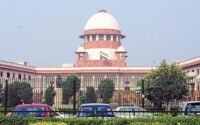The Repercussions of Being an Indigent ( An Indian Perspective)
Prelight: There is an old proverb, “Money cannot buy Happiness” it might be true in the earlier eras but if we go through today’s scenario is it really so? In a world where almost more than 50 percent of the population is living in a situation of ‘hand to mouth’ can money not give them peace? Moreover, who thinks about peace in today’s world? The one who has money thinks of accumulating more of it and the ones not having it live in a dream of achieving it somehow, if not for them, then at least for their forthcoming generation. The former two mindsets however, are only responsible for creating a larger and larger gap between each other which is commonly known as the INCOME INEQUALITY, the major point of discussion of this article.
Indian Statistics of Economic Distribution: As per a survey report published by OXFAM,titled “Public good or Private Wealth” in the year 2019, the top 10% of the Indian population holds 77% of the total national wealth. 73% of the wealth generated in 2017 went to the richest 1%, while 67 million Indians who comprise the poorest half of the population saw only a 1% increase in their wealth.There are 119 billionaires in India. Their number has increased from only 9 in 2000 to 101 in 2017. Between 2018 and 2022, India is estimated to produce 70 new milliBillionaires’ fortunes increased by almost 10 times over a decade and their total wealth is higher than the entire Union budget of India for the fiscal year 2018-19, which was at INR 24422 billionaires every day. Whereas, many ordinary Indians are not even able to access the health care they need. 63 million of them are pushed into poverty because of healthcare costs every year – almost two people every second.And if this process continues the statistics suggest that it would take approximately about 941 years for a minimum wage worker in rural India to earn what the top paid executive at a leading Indian company earns in a year. In the period between 2006 and 2015, ordinary workers saw their incomes rise by an average of just 2% a year while billionaire wealth rose almost six times faster. India has made substantial gains in health and education over the past few decades, but the picture is not uniformly positive. Disparities persist across social groups, states, and rural–urban areas, reflecting inequalities in opportunity to access basic services.The bottom 60% of the population holds only 4.8% of the national wealth.13.6 crore Indians, who make up the poorest 10% of the country, and have continuously remained in debt for the past 15 years.The Gini coefficient of wealth in India in 2017 is at 0.83, which puts India among the countries with highest inequality countries.The billionaire boom is not at all a sign of a thriving economy but a symptom of a failing economic system. Those working hard, growing food for the country, building infrastructure, working in factories are struggling to fund their child’s education, buy medicines for family members and somehow manage two meals a day. But on the other hand, the former are living a lavish life and not only that, have ensured the same luxury for their further generations as well.
Issues to consider: Economic inequality is most disturbing when it is not the result of lack of efforts or talents, but instead is determined by the situations under which a child is raised. For example if, one child is able to go to a well-run grade school and high school and heads on to college, with parents supporting his education and other interests, paying for college, a vehicle, mobile phone, and also offer work connections that provides an opportunity to internships and jobs and there is an another child who attends a poorly run government grade school, barely makes it through a low-quality high school, does not go to college, and lacks family and peer support, these two children may have similarity in their capabilities and talents, also the effort they put forth may be alike too, but their economic outcomes are likely to be quite different. When we look at economic inequality from this perspective it becomes certain that the government has failed on the economic front, especially in the primary development of educational pillars and creation of jobs. There has been a rise in unemployment and lower participation of the labour force in the past couple of years that point towards low job creation. Another nail in the coffin is the corruption which has spread like an epidemic in the roots of our system, be it from any political party, elected leaders are corrupt and pass this to administration as well which is a very big problem in India.Further, there are important infrastructure-related governance issues due to the which half of the population suffers falling wages. Availability of water for irrigation is a major concern. Half of India’s agriculture depends on the monsoon for irrigation. The farmers continue to be in deep debt and hence ease of access to loans is a major concern. So in a sphere there is no single handed cause of this inequality generator but multiple of them entangled in each other.
Repercussions and Comments: An indigent apparently seems to be but actually is not very welcome in any fronts of the society, be it social, administrative, or legal. Already suppressed by hunger and needs he finds a warfront in every aspect of societal anteriors. Let be a document to be made or a case to be registered or even a justified right is to be sought. He has a battlefield lying just next to his door and in some cases there’s no door as well. The end no. of governmental speeches and schemes have proven a vain for the righteous. The basic problem is the implementation and the building structure of the schemes. All the amenities that are put for an indigent class have already a comparatively compromised standard and till the time of reaching it gets impoverished. It’s high time that we ask ourselves a question, what is justifyingly more important? A kid going to school or a nation going to Mars, an ample three time food for a family daily or travelling in a bullet train, a person making lavish multiple floor car parking and servant quarters in his house or a roof to the ones who are compelled to die in footpaths everyday? The answer would be simple enough but no one chooses to deliver it.


